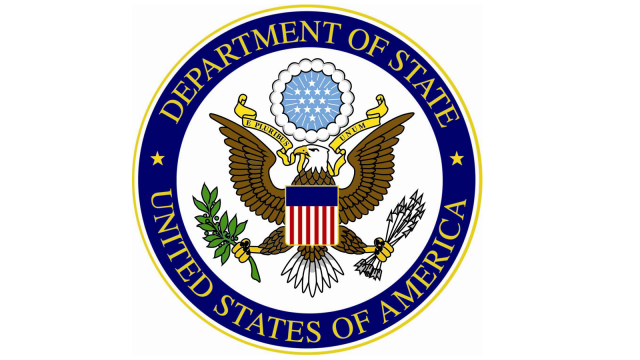U.S. Department of State Releases 2015 Country Reports on Human Rights Practices

On Wednesday, the U.S. Department of State released the 2015 Country Reports on Human Rights Practices, which once again included extensive information about the human rights of LGBT people worldwide. A compilation of the information from the report regarding sexual orientation and gender identity can be found here, which includes information about new anti-LGBT legislation as well as the ongoing persecution and violence facing LGBT people around the world.
“While there has been progress for LGBT people in some countries, in too many other countries around the world LGBT people still face tremendous discrimination, persecution and violence,” said David Stacy, HRC Government Affairs Director. “This report is yet another reminder of how much still needs to be done in the global struggle for LGBT equality.”
In his remarks on Wednesday, Secretary of State John Kerry focused on the need to respect and prioritize human rights worldwide.
“Respecting human rights isn’t just a moral obligation; it’s an opportunity to harness the full energy of a country’s population in building a cohesive and prosperous society. And it doesn’t jeopardize stability; it enhances it,” he said. “In country after country where human rights are respected, people are happier, people are freer to pursue their own designs, happier and freer to be artistic and creative, to be entrepreneurial, to make a difference in the building of the community.”
As in previous years, each country report includes a section on LGBT rights. Some examples include:
- In Egypt, LGBT people continued to face discrimination and arrest on charges like “debauchery,” “prostitution” and “violating the teachings of religion.” LGBT people are often harassed by police and forced to pay bribes or provide information about other LGBT people in order to avoid arrest. In 2014, 26 men were arrested for “practicing debauchery” and “indecent public acts” and although they were acquitted in 2015, 21 of them were reportedly subjected to forced anal examinations by the authorities following their arrests. Moreover, authorities used social media and apps to target and arrest people suspected of being LGBT.
- LGBT people continued to feel the effects of Russia’s anti-LGBT propaganda law. LGBT people, especially gay men, were often subject to violence and there were reports of killings motivated by sexual orientation bias this past year. The police often failed or refused to respond to anti-LGBT violence and harassment and there were reports that authorities were specifically targeting LGBT NGOs and activists. Furthermore, homophobic campaigns by the state-controlled media continued and Moscow authorities prevented a gay pride parade from being held for the 10th consecutive year.
- In Uganda, sex between people of the same-sex is criminalized and in January 2015, nine men who helped organize an HIV & AIDS testing clinic were arrested for “carnal knowledge against the order of nature” and subjected to forced anal exams. In July, a group of local LGBT rights NGOs released a report highlighting 89 LGBT human rights violations in 2014, over half of them committed by state actors.
- In Indonesia, where conditions have dramatically worsened for LGBT people this year, local regulations criminalize same-sex sexual activity, and a local ordinance in Jakarta automatically identifies all transgender people on the streets at night as sex workers. In Aceh, the local government passed a new criminal code in 2015 that punished same-sex acts with 100 strokes of the cane.
The findings of this report, which includes more information on LGBT rights than even just a few years ago, once again underscore the need for continued focus on the plight of LGBT people around the globe and serve as useful tool for combating violence and discrimination against people everywhere in the world, regardless of who they are or whom they love.
Through HRC Global, HRC will continue to advocate for LGBT equality around the world through public education, advocacy, fellowships, partnerships, and research.
www.hrc.org/blog/u.s.-department-of-state-releases-2015-country-reports-on-human-rights-prac?utm_source=rss&utm_medium=rss-feed






 #comedy
#comedy 







